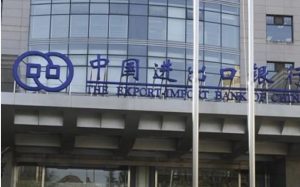
China alone holds 64.8% of Cameroon’s bilateral debt valued at approximately 2,968 billion FCFA, with receivables amounting to 1,923.4 billion FCFA. According to the economic note made public on October 31, 2024 by the Autonomous Amortization Fund (CAA), this amount is equivalent to 22.4% of the country’s total outstanding external debt, which amounts to 8,596 billion FCFA. France, the other main bilateral creditor, follows with an outstanding amount of 768.3 billion FCFA, or 25.9% of bilateral debt and 8.9% of total external debt.
Cameroon has borrowed significantly from China to finance various projects. This situation gained momentum in the early 2010s, with the launch of major so-called structuring projects. China financed the construction of hydroelectric dams, bridges, roads and even the deep-water port of Kribi, notably through the Export and Import Bank of China (Eximbank China), the Chinese public bank specializing in foreign trade. China is also strengthening its position in the mining sector in Cameroon, where it has been present for several years through Sinosteel, the very first mining operator to obtain a permit to exploit iron ore in the country.
Cooperation between Cameroon and China has intensified since the establishment of official diplomatic relations on March 26, 1971. It extends to several areas, such as trade, infrastructure, industrial investments, agriculture, health and digital. This partnership is based on a legal framework made up of various signed agreements, including loan agreements, economic and technical cooperation, as well as cultural, medical, commercial and tourism agreements. On the commercial front, trade between the two countries reached nearly 1,178.1 billion FCFA in 2023, marking an increase of 24.1% compared to 2022, according to the National Institute of Statistics (INS).
During his visit to China for the 4th Forum on Sino-African Cooperation (Focac) last September, President Paul Biya expressed the need to intensify Chinese investments in Cameroon’s road infrastructure to pursue his vision of emergence of the country by 2035. “Our objective is to build a more solid economy, based on competitive local industries, capable of transforming our mining and agricultural resources with a view to satisfying endogenous needs and exporting products in large quantities “, he said, presenting Cameroon as a good risk for Chinese investors.
Courtesy Business in Cameroon


